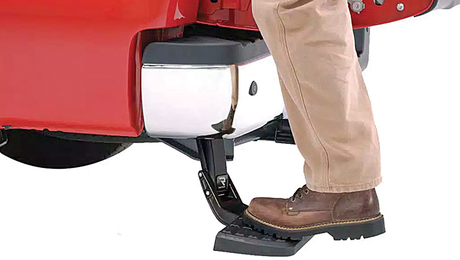Hydraulic cement for slab fix leakage?
Folks – My newly-poured slab under an addition to my home is leaking around the edges, where the slab comes up against the foundation walls. This is likely because, as some may recall from a post last week, the GC had the slab poured directly onto the mud, no gravel, sand, or poly vapor barrier, just right onto the mud.
He’s been through a few ideas about a fix, obviously being reluctant to remove the slab and do it all over properly. The current idea, given to him by the guy he uses for excavation and such, is to use a hydraulic cement. He plans to break up the edge of the slab (a strip couple inches wide) and then pour a 1 inch thick slab of the hydraulic stuff over the current slab. Apparently the idea in breaking up the edges is to let the hydraulic stuff get down a bit. He said that the hydraulic cement would “bind” to the foundation walls, including the wall which is the original (50 year old) foundation of the house.
Web information indicates that “hydraulic cement” is a somewhat nonspecific term, and I don’t know precisely what the GC means in terms of the actual mix to be poured. However, I have some concerns. First, I’m wondering if the bit about “binding” is accurate. I’ve seen (here and elsewhere) so many messages about difficulties in trying to fix basement cracks and leaks that this sounds a bit bogus. I know that fixing crack leaks in concrete usually needs expensive injected epoxy, so why would this cheaper approach work?
Second, if I have a 1″ thick slab on top of an already-cured slab, won’t that top slab be prone to breaking up as it is walked on, or has things drop on it and so forth? One inch just seems to thin to be a “slab”; seems like it’d be asking for cracking down the road.
Thanks for all thoughts on this. Folks here have been very helpful in this ongoing saga and I appreciate the assistance.
Ken
North Granby, CT















Replies
It's leaking because the soil water level is higher than the slab. Plugging the leaks might work for a few months, but they'll come back if the water level isn't fixed.
If he's going to bust up the slab he should do it right. Dig down 10-12 inches and put in tile, tied to a sump or drained to daylight.
This sounds pretty bogus to me.
Hydraulic cement is basically a very high-portland-content/low-aggregate-content mix which hardens very quickly--literally in minutes for some formulations. It will bond to some extent to old concrete, but in your case the slab and new footings, walls, etc., are probably still green, so that needs to be taken in to consideration as well.
Your suspicion that the 1" slab of hydraulic cement poured on top would break up strikes me as valid. Hydraulic cement has very little structural strength due to its low aggregate content.
So my advice is, forget it.
There needs to be drainage under the slab, or you will always have ground water coming in to say hello. Period. A slab poured directly on the mud is about as dumb a stunt as I have ever heard perpetuated by a supposed professional.
Make this GC reap the rewards of his lesson in what not to do in the future. He needs to bust out the slab, put in gravel and proper drains, and do it over again right. Sorry for him, but he's the one who goofed, not you.
Dinosaur
A day may come when the courage of men fails,when we forsake our friends and break all bonds of fellowship...
But it is not this day.
Could not find a good definition of hydraulic cement.By one definition all portland cements are hydraulic.http://www.cement.org/basics/concretebasics_faqs.asp" Will concrete harden under water?Portland cement is a hydraulic cement which means that it sets and hardens due to a chemical reaction with water. Consequently, it will harden under water. "But the more tyical usage might be for "blended hdrulic cements"http://www.cement.org/tech/cct_port_cem_prod_tech.asp"» Types of Hydraulic Cements
All portland and blended cements are hydraulic cements. "Hydraulic cement" is merely a broader term. ASTM C 1157, Performance Specification for Hydraulic Cements, is a performance specification that includes portland cement, modified portland cement, and blended cements. ASTM C 1157 recognizes six types of hydraulic cements:Type GU-general use
Type HE-high early strength
Type MS-moderate sulfate resistance
Type HS-high sulfate resistance
Type MH-moderate heat of hydration
Type LH-low heat of hydration"and http://www.cement.ca/cement.nsf/0/0832D7018F613F82852568AA005CB185?OpenDocumentBut I could not find anything about specific characteristics.What I am familar with as hydraulic cement is what Dinosaur mentioned.http://www.unitex-chemicals.com/catalog/hydraulic_cement.shtmlhttp://www.homestore.com/HomeGarden/HomeImprovement/HowTos/HowTos/CRHO_SealingMasonryWall.asp?poe=homestoreQuick setting, typically 3-5 minutes, but I saw one refernce to 45 sec setting. Which also expands and can be used to plug leaks under "pressure". But something like that could not be used to fill wide slot cut around the floor. You would have to have a thousand little 5x5" patches.Now possibly one of the "blended hydraulic cements would be good this, I have no idea.But get SPECIFIC INFORMATION. Brands, specs, etc.
Edited 6/18/2005 6:34 pm ET by Bill Hartmann